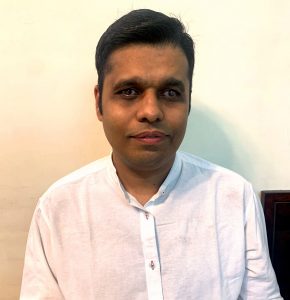
For many, web accessibility encompasses making a site accessible to a screen reader user. With the evolution of the web, the software we use for accessing information has become more sophisticated. Web browsers, tablets and smartphones are potent tools that make the web available to anyone. There are a billion people globally with disabilities – mainly those whose hearing, visual, speech, mobility, cognitive or neural functions are impaired. Their inclusion and empowerment are necessary and beneficial for them as well as for their family members. Such inclusion also boosts independence and a more refined sense of financial judgements. A financially sound and technically equipped batch of these one billion people can turn stones for society as a whole.
Though visually impaired since birth because of a degenerative eye disease called Retinitis Pigmentosa, Rahul has challenged every hurdle in his life with a brave face and emerged a winner all the way through. He started by doing what was necessary, then doing what was possible. In no time, he was doing what seemed impossible.
With digital transformation, it is imperative to ensure that people with disabilities partake in the future workforce. And digital transformation connected with EdTech, FinTech, and networking can encourage the disabled towards success and most certainly help in tapping into their potential and unique skillsets.
“Know me for my abilities, not my disabilities,” said Robert M. Hensel, an advocate for the disabled, who was born with a birth defect known as Spina bifida. If you are seeking a perfect embodiment of this quote, look no further than Rahul Gunwant Kelapure. Though visually impaired since birth because of a degenerative eye disease called Retinitis Pigmentosa, he has challenged every hurdle in his life with a brave face and emerged a winner all the way through. He started by doing what was necessary, then doing what was possible. In no time, he was doing what seemed impossible.
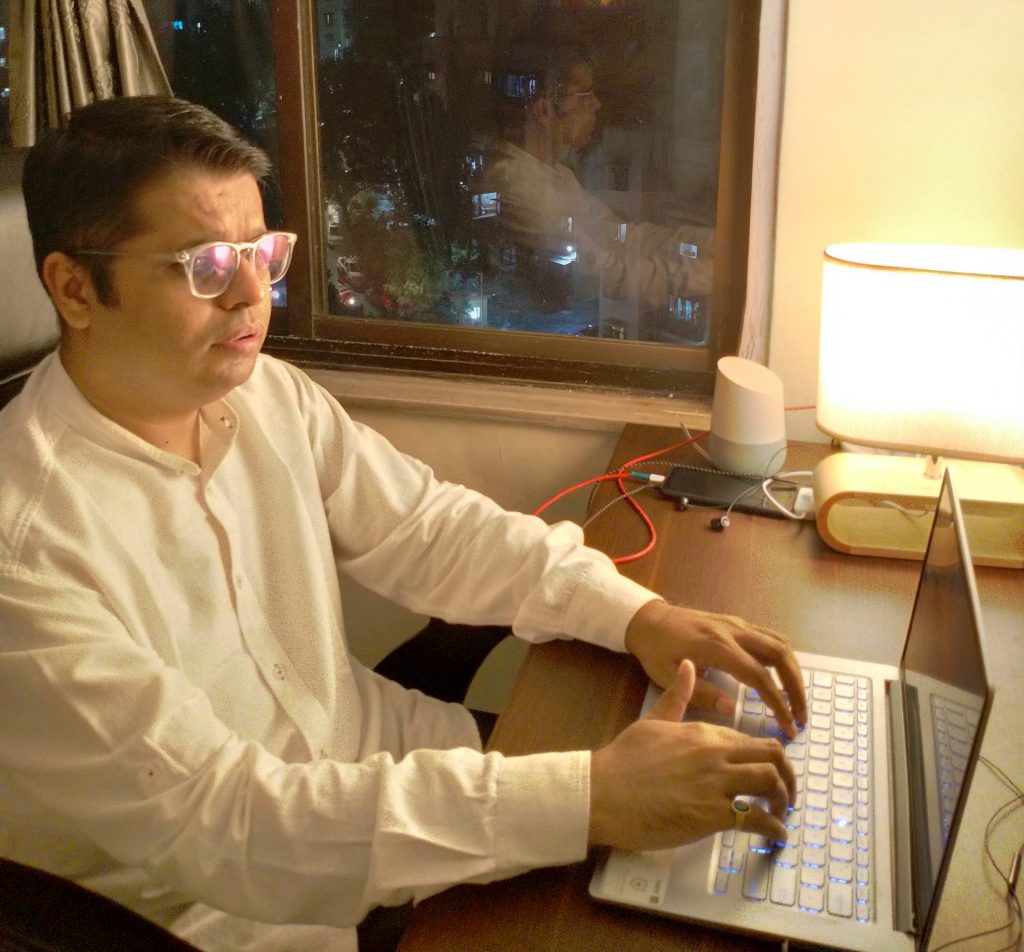 Humble and forever smiling, Rahul seldom reveals the hardships he had faced in his life to reach where he is right now. Serving a pivotal position as Assistant Legal Adviser in the Legal Affairs Department of Securities and Exchange Board of India (SEBI), sheer determination and tenacity saw this HSC merit holder and LLB Gold Medallist soar higher and higher in his endeavours. Having completed his MBA in Finance, he did his Post Graduation in Securities Law from the National Institute of Securities Market (NISM) with distinction. He also holds a Post Graduate Diploma in Cyber Laws from the Asian School of Cyber Laws. He is currently pursuing a Company Secretary Course. His grit and determination did not go unnoticed. He was recently awarded the AOF Young Achievers Award for excellence in educational and professional qualifications, distinctive skills, and achievements attained at a young age.
Humble and forever smiling, Rahul seldom reveals the hardships he had faced in his life to reach where he is right now. Serving a pivotal position as Assistant Legal Adviser in the Legal Affairs Department of Securities and Exchange Board of India (SEBI), sheer determination and tenacity saw this HSC merit holder and LLB Gold Medallist soar higher and higher in his endeavours. Having completed his MBA in Finance, he did his Post Graduation in Securities Law from the National Institute of Securities Market (NISM) with distinction. He also holds a Post Graduate Diploma in Cyber Laws from the Asian School of Cyber Laws. He is currently pursuing a Company Secretary Course. His grit and determination did not go unnoticed. He was recently awarded the AOF Young Achievers Award for excellence in educational and professional qualifications, distinctive skills, and achievements attained at a young age.
One might wonder about his excessive quest for learning regarding finance. He loves the subject, but there is also a higher purpose of life at play – giving back to society and helping his differently-abled friends gain financial independence. “I figured that many people out there had absolutely no awareness about something as basic as opening a DEMAT or bank account, types of investments available and the easy accessibility of affordable financial services. People with financial knowledge can create multiple income streams, understand the value of money, and plan for emergencies. More importantly, it gives people a sense of economic independence and empowerment. However, financial literacy is low among the majority of the population, particularly among the disabled. So, I wanted to do my part in contributing to improving the situation,” says Rahul. Keeping this noble thought in mind, he began conducting workshops on money management and financial investments.
Rahul has collaborated with various NGOs to spearhead over 100 workshops across India in Maharashtra, Karnataka, Telangana, Tamil Nadu, Rajasthan, Madhya Pradesh and Punjab. His workshops have benefitted around 10,000 people so far. A substantial number of attendees are now actively investing their money in avenues like fixed deposits, mutual funds and stock markets.
Since his commitment to SEBI keeps him busy on weekdays, he spends his weekends conducting free interactive training sessions focused on financial proficiency and investment decisions. All these workshops are designed specifically for persons with disabilities. The topics covered in these workshops range from setting financial goals to determining their risk appetite to exploring more investment avenues like equity, mutual funds and commodities. Since most of those who attend his sessions earn low income or are unemployed, Rahul ensures to present his concepts in a simple manner that can be grasped without much effort and does not require much investment.
Rahul has collaborated with various NGOs to spearhead over 100 workshops across India in Maharashtra, Karnataka, Telangana, Tamil Nadu, Rajasthan, Madhya Pradesh and Punjab. His workshops have benefitted around 10,000 people so far. A substantial number of attendees are now actively investing their money in avenues like fixed deposits, mutual funds and stock markets.
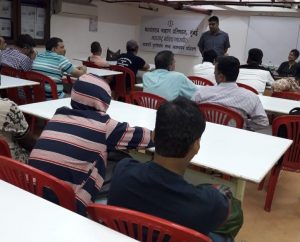
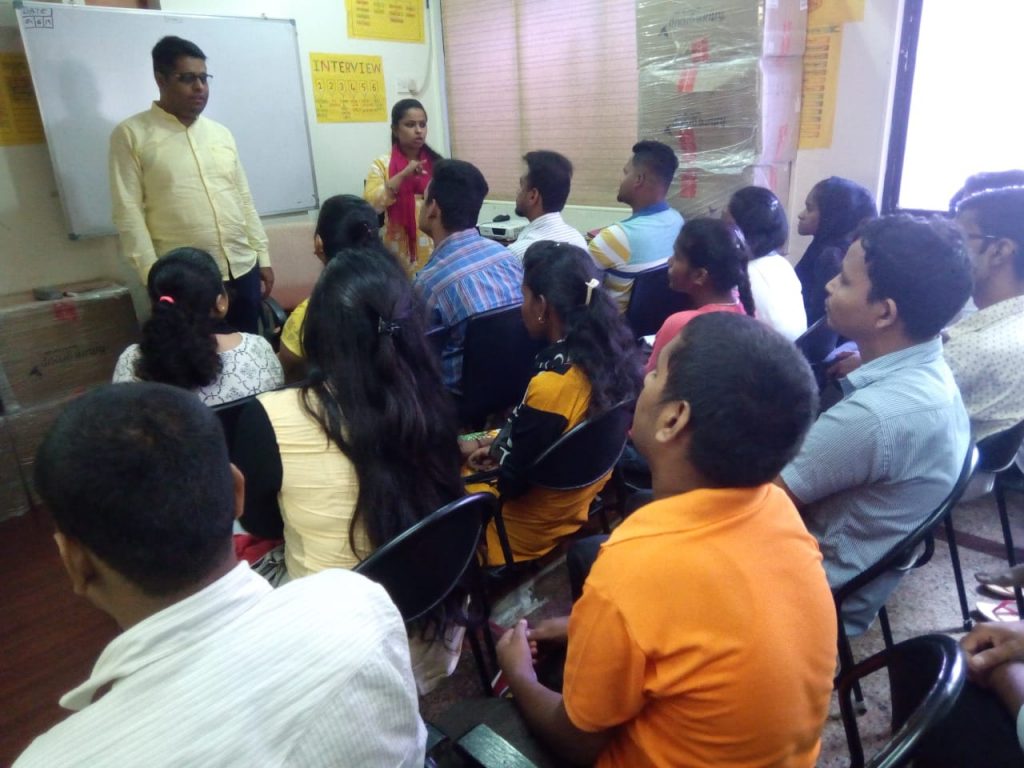
One common challenge he faces during such workshops is the anxiety and lack of confidence of the attendees to adopt the digital platform. With more advancement in technology, the software used to access information is becoming more sophisticated. While web browsers, smartphones and tablets make the internet available to everyone, the software used can only get us halfway towards the goal of a fully open, accessible web. To ensure disabled users enjoy a complete experience and are free from hurdles, financial organisations should keep in mind that accessibility is at the core of their website and app designs. The provision of improved web accessibility makes perfect business sense as well. Apart from being a social endeavour earning them goodwill, it also helps the company enhance their outreach with more customers getting on board.
Rahul is currently pursuing a Company Secretary Course. His grit and determination did not go unnoticed. He was awarded the AOF Young Achievers Award for excellence in educational and professional qualifications, distinctive skills, and achievements attained at a young age.
Accessible websites enable a broader section of society to access the internet and find all the information they are seeking. If, as a company, you are interested in ensuring that knowledge is shared equally among people of all backgrounds, you could conclude that accessibility is a moral obligation – something we should all do. It is mandated by law. It is being adapted all across the world, so why should India lag behind? The Rights of Persons with Disabilities Act, 2016, clearly states that effective measures have to be taken to ensure that persons with disabilities enjoy their rights equally with others.
Accessibility is a key aspect of a good website/app design as it benefits both disabled and able-bodied users. Thankfully, there are plenty of web design trends that encourage responsive layouts and large fonts that adapt themselves to different output devices, whether it is a laptop, tablet computer, smartphone or a TV for that matter. The same goes for Flash-based websites. Thanks to the advent of the HTML5 mark-up language, the inaccessible Flash format is slowly disappearing. The W3C Web Accessibility Initiative (WAI), which lays out accessibility solutions in line with international standards, also support such assistive technologies. The recent websites enabled with technologies like keyboard navigation, ARIA (Accessible Rich Internet Applications), CSS data presentation, and screen readers like JAWS and COBRA contribute to increasing the number of users with cognitive disabilities to independently use such websites. Even with simple tools like DIY website creators, it is possible to build an accessible website.
Rahul was able to pursue his passion for reading seamlessly and effortlessly via Optical Character Recognition (OCR) Technology which let him read any book by converting it into text. While the books created with this technology are mostly available in English, he wanted to address the need of those speaking other Indian languages like Marathi. He partnered with several NGOs and began offering a Marathi Optical Character Recognition service, allowing people to read Marathi books in digital format. He fondly recalls his early days of struggle when he had to rely on a family member to read the lessons to him before progressing to braille textbooks and, later, listening to audiobooks recorded in NAB’s talking book library while in college.
Rahul says, “While in Law College, as the books related to Law were not commonly available, my friends and other volunteers would read the textbooks and record it for me. It was undoubtedly a cumbersome procedure. The introduction of screen readers on computers with the start of Y2K revolutionised the way I studied. I used the services of a scribe to help me with my exams.” Simply put, when designing for users with cognitive disabilities, basic usability attributes will go a long way toward ensuring that your site can and is used to improve accessibility or simply trying to make a better website.
Rahul is currently pursuing a Company Secretary Course. His grit and determination did not go unnoticed. He was awarded the AOF Young Achievers Award for excellence in educational and professional qualifications, distinctive skills, and achievements attained at a young age.

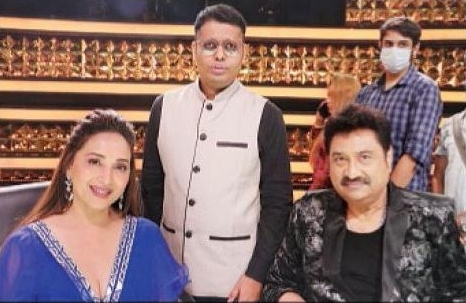
Rahul does not only limit his interest to academics and finance. He is fond of singing and is a huge Kumar Sanu fan. He has performed in many shows and was eminently called ‘Junior Kumar Sanu’. Dreams do come true with determination and will. Rahul lived his fan moment with Kumar Sanu on a television show when he sang with him on stage.
“I am proud to have helped so many in their digital transformation journey. I will continue to enable as many people with disabilities to make smart investment decisions as possible,” signs off Rahul with a smile.

